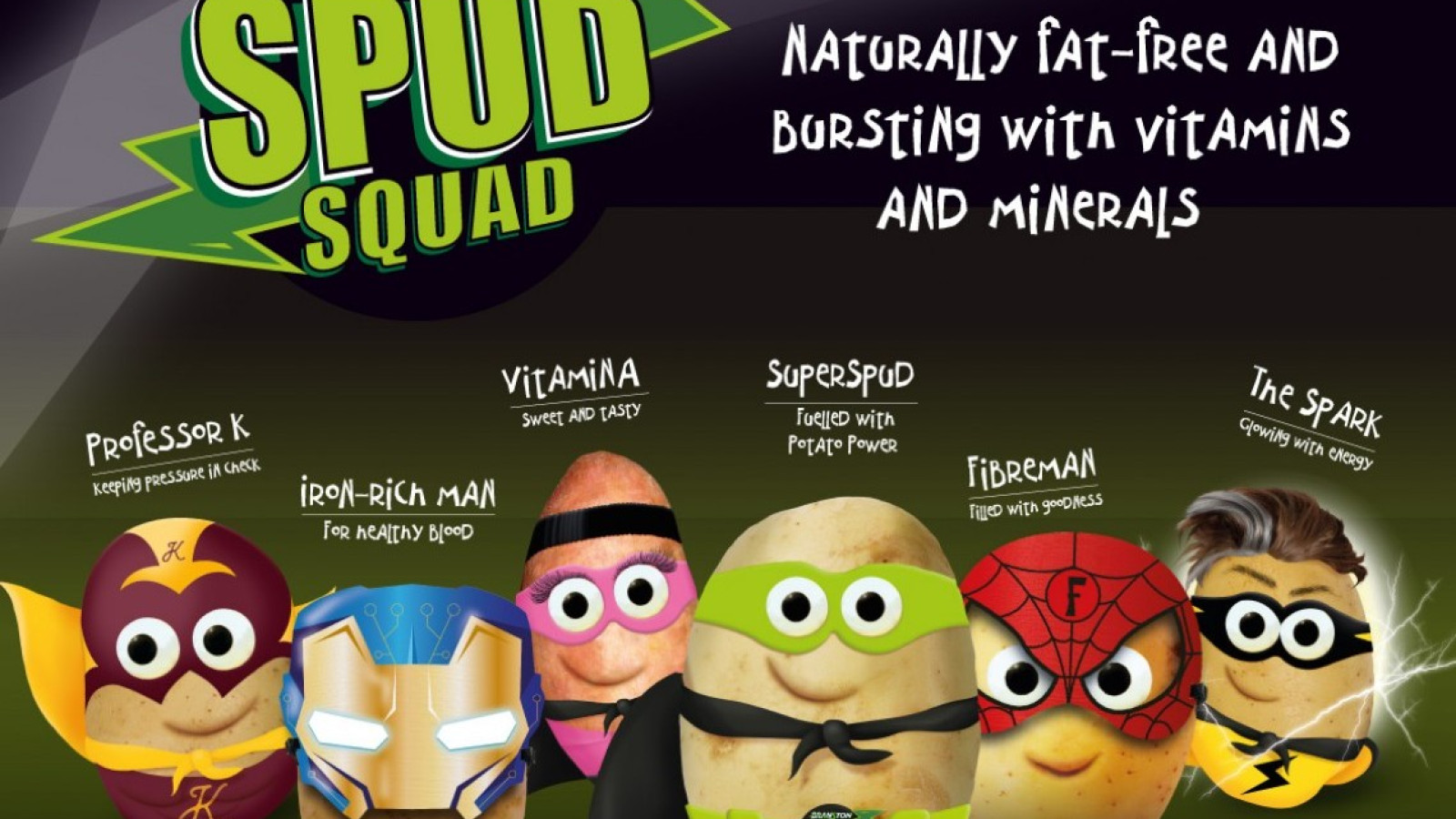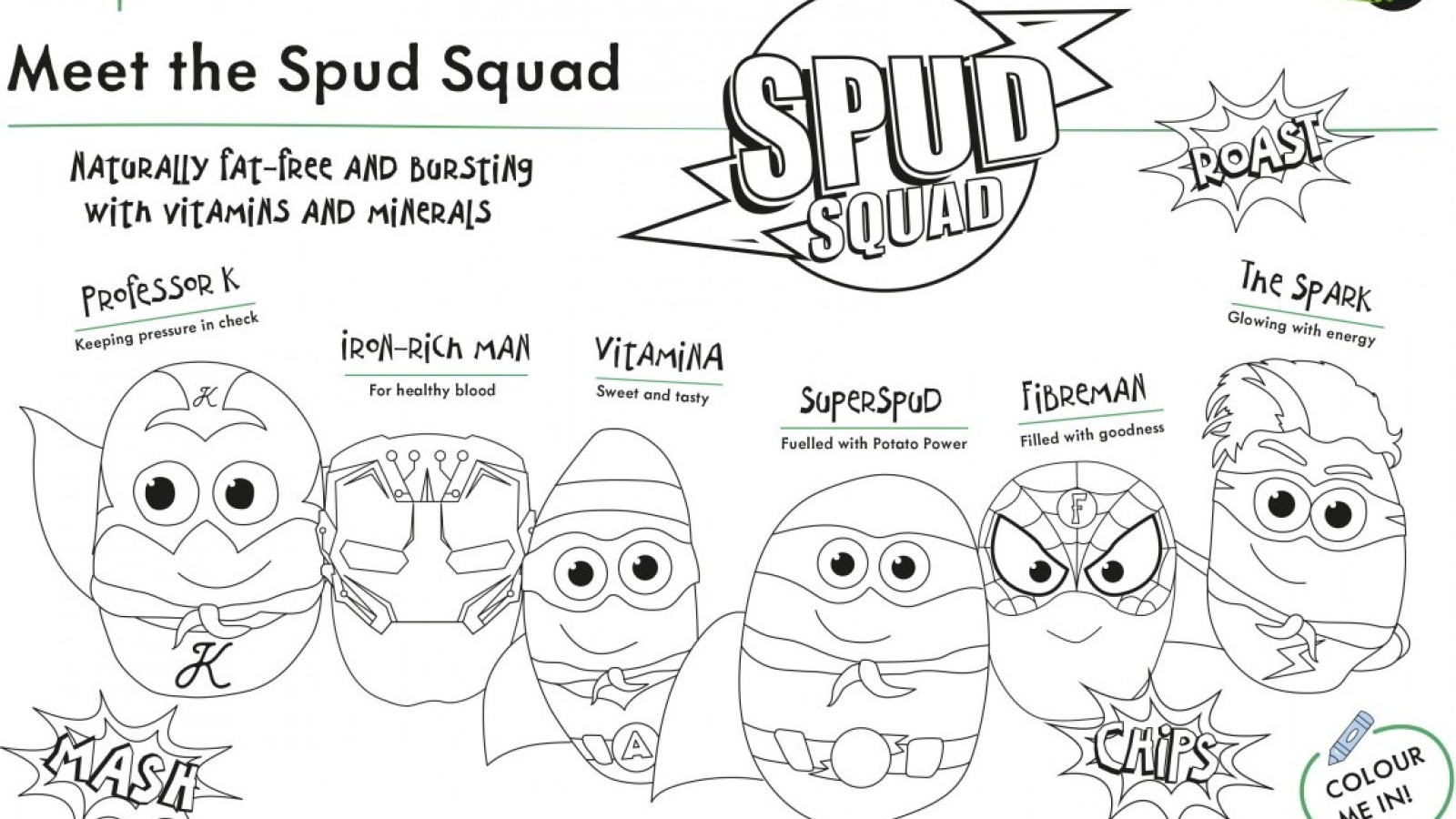


Meet the Spud Squad
Here's a colouring-in sheet featuring our superhero Spud Squad for you to print off
Introducing the Spud Squad from left to right…
Professor K
Why Professor K? K is the chemical symbol for potassium and spuds are a good source of potassium in your diet. This essential mineral helps to regulate water content in your body and is important in maintaining healthy blood pressure. So, that’s how Professor K keeps pressure in check.
Iron-rich man
Spuds are rich in iron that’s in a form your body can easily absorb. Your body needs iron because it is helps to make special proteins – one in blood that allows it to carry oxygen around your body and one in muscles too. If you don’t get enough iron in your diet you can feel weak and tired.
VitaminA
She’s a tasty sweet potato. Did you know that sweet potatoes aren’t potatoes? They’re from a completely different plant family. Potatoes are related to tomatoes and peppers. Sweet potatoes are in the same family as flowering morning glory vines. They’re not as high in vitamin C as potatoes, but are much higher in vitamin A.
SuperSpud
Spuds are a starchy carbohydrate, as well as being a root vegetable. They’re featured in one of the key food groups of the Eatwell Guide, the UK’s healthy eating model. Starchy carbohydrates like spuds are a good source of energy, giving power to our brain and our muscles.
Fibreman
Natural fibre in our food helps us to digest our food properly and process it through our bodies at a healthy rate. Spuds, especially in their skins, are a good source of fibre. For example a medium sized baked spud with its skin contains around 5g of fibre, which is about a quarter of the recommended daily intake for a primary school-aged child.
The Spark
If you’ve ever made a potato battery as a science experiment you’ll know that spuds are full of energy. As they grow the plants store energy in the spuds as starch and when you eat them your digestive system transforms it into glucose - a vital fuel source for every cell in your body.

